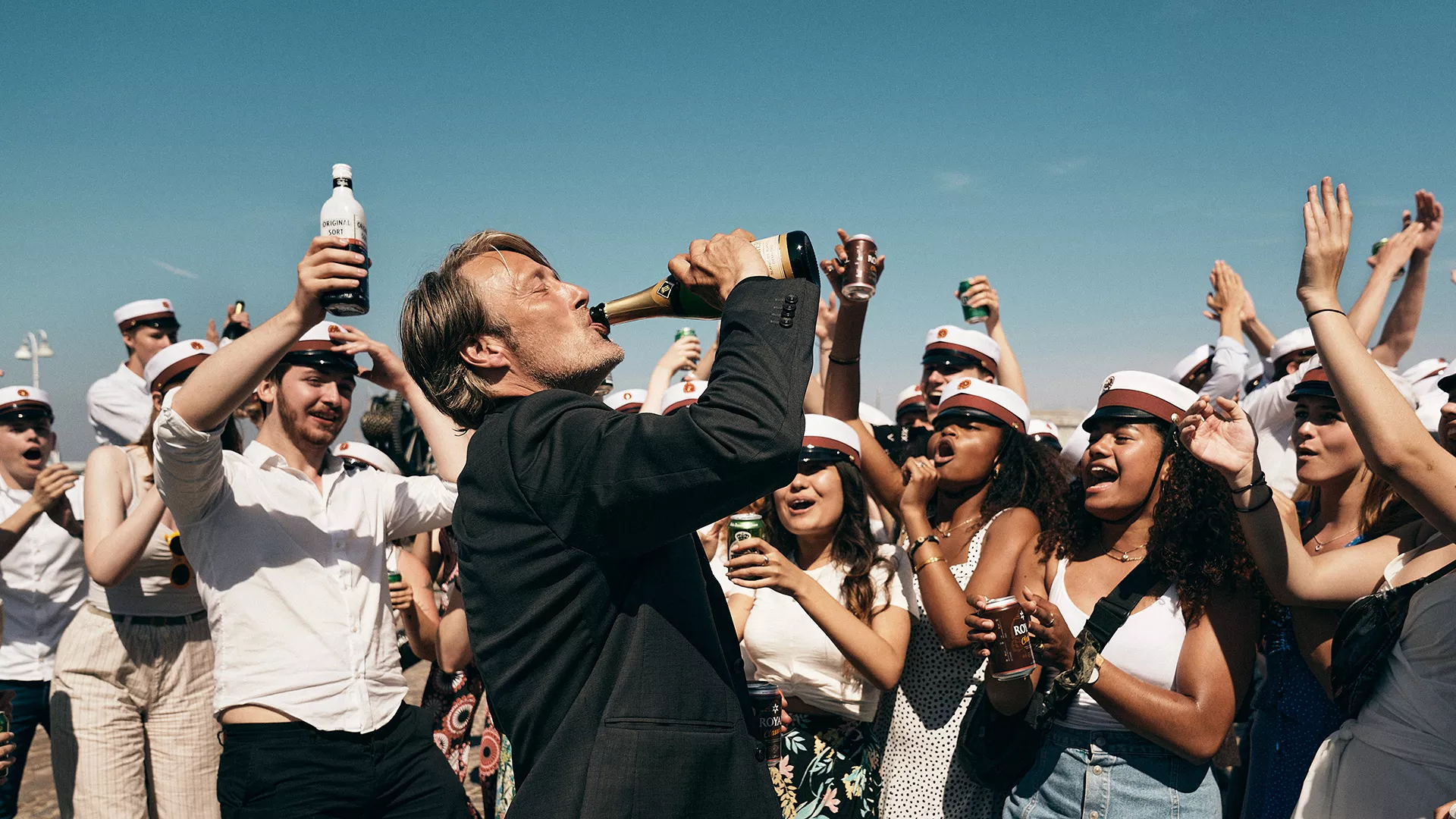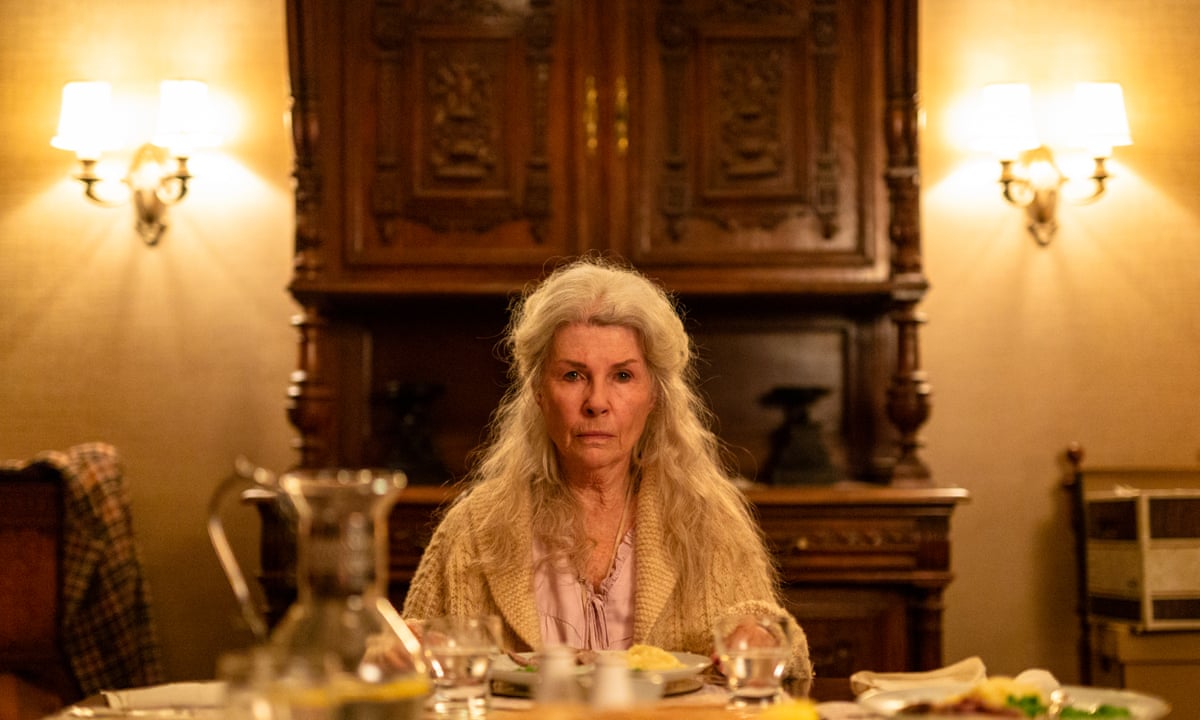What’s the purpose of film criticism? To explicate a movie’s meaning, to expound on how it fits into a director’s oeuvre, or to put the film in social context? Great criticism can do all three at once, but in my heart of hearts, I still think of my role as a consumer guide. I want to help people find the great films. I want to help elevate the profile of smaller films. I want to connect great art to those who might appreciate it because beauty begets beauty, or at least I hope it does. If not, what’s the point of anything?
Believe it or not, there was a lot of beauty onscreen in 2020. Of course, there’s no such thing as a bad year in film, if you know where to look. But this year, knowing where to look became a trickier proposition. On the one hand, almost every 2020 release is currently available for you to stream in your living room. Most of them never played in theaters at all. Convenience is king, but the lack of theatrical distribution actually makes it harder to know where to find things. Let’s say you catch a little online buzz about a new release. Is it on Netflix, Amazon, Hulu, or HBO Max? Or maybe Criterion or Shudder or Kino Marquee? Without guidance, you could spend your whole evening opening and closing apps, falling asleep on the couch in front of the Roku main screen. In the old days – yes, that’s what I’m calling the era before March of this year – you would hop on Fandango on a Friday afternoon and check out the new releases. This year, even a film critic can be unable to find a reliable release schedule for streaming services.
I could write an infinite number of words on the ways the events of 2020 may have changed moviegoing, but for the purposes of this missive, let me simply say this: A perfect year-end list has a delicate balance of popular titles, respected indies, and out-of-left-field international films or micro-indies, but in the cursed year of 2020, unless you’ve been following the discourse on Film Twitter, you may not have heard of any of them. So what follows is part 1 of my Top 20 of 2020, but if you want to get the most out of it, you could just call it your queue.
Part 1 – #20-16
20. Another Round
Sometimes I think the difference between a very good film and a great one is just how much you personally relate to it. Another Round is a Danish movie about a group of adult male friends – they all teach at a primary school – who are so disappointed in their middle-aged lives that they decide to carry out a risky experiment just to liven things up. Based on a far-fetched idea that humans are born with the wrong blood alcohol content, they decide to live in a mildly inebriated state all day (even at school) and record the results.
It’s a film that captures the spirit of 2020 in that all I want to do right now is get together with my friends and do some day-drinking. But it also packs a powerful emotional punch. Director Thomas Vinterberg uses his quartet of overgrown boys to show that everyone has their own tolerance. One character may suffer a few ugly arguments with his wife, another could end up in the hospital. One gets so sloppy that he risks losing his job, while another actually gets better at it. It’s the most honest film about excessive drinking I’ve ever seen, demonstrating both the highs and the lows, the ecstatic nights and the wretched mornings that follow.

19. The Painter and the Thief
I requested an assignment to review Painter and the Thief back in May based on its buzz out of this year’s Sundance Film Festival. I knew very little about it. I watched it and enjoyed it, but when I dug into my post-watch research, I made a startling discovery: It was a documentary. The narrative was so strong, the characters so bold, and their relationship so tightly constructed that I thought it was just a cinema verite-style fiction film. I had to watch it again right away. As a documentary, I love it even more.
In defense of my misread, it’s got a bonkers set-up. Barbora Kysilkova is a Norwegian painter who, after her paintings are stolen from a local art gallery, approaches the thief at his arraignment and asks to paint his portrait. From there, a perceptive story about art, addiction, and the thin line between them unfolds. It’s a thoughtful, deeply watchable film that also contains my favorite reaction shot of the year: the look on the thief’s face when he first sees the portrait. It’s not just that she sees something beautiful in him. It’s that she sees him at all. As a drug addict who has spent his adult life getting in and out of trouble, few have bothered to look. We should be glad she did.

18. Shithouse
There’s a great bit of dialogue early on in Shithouse, the winner of 2020’s “best movie with the worst name” award. It comes when Alex, a college freshman with adjustment issues, is chatting up his cute, female RA in the common area. After a few minutes of flirting, she invites him back to his room. “For what?” he asks. “To kiss and have sex?” The direct approach works for Alex, except it’s not a scheme. He’s really that guileless. Up until that moment, college really wasn’t going well at all. Over the course of the film, it starts to go just slightly better.
A prize winner at last year’s South by Southwest festival, Shithouse carves out its own unique space in the college movie genre. It’s more Before Sunrise than Animal House. Played by the film’s 23-year-old director Cooper Raiff, Alex doesn’t adhere to any of the stereotypes we typically associate with college movies or even coming-of-age stories. He’s good-looking and charming but he doesn’t know it. He doesn’t have any friends, probably because he’s so vulnerable that it hurts to be around him. His roommate hates him. His best friend at school is the stuffed animal he brought from home, which he actually keeps in plain sight on his bed. He misses his mom like crazy. He cries unabashedly when he feels sad. He’s a guy I know (maybe more well than I’d like to admit), and I’ve never seen him onscreen before. That alone makes Shithouse a must-see.

17. Relic
It has taken me years to come around to horror movies. My long-time opposition to it was simple: I didn’t like being scared. But over the last few years, I’ve come to understand how horror lends itself to pure cinema – that ability to provoke a response in the viewer through movement and light alone – more than any other genre. Making an audience gasp in collective fright is magic. In the last decade, there has been a boom in what some call “elevated horror,” movies that not only scare but also edify. Films with resonant character arcs and even social themes. These are great, but a horror film doesn’t need to be “important” for it to be good cinema.
This year’s Relic scared the shit out of me. But it also made me cry. And think. Emily Mortimer plays a woman summoned to the house of her elderly mother, who has been missing for several days. Her mother soon returns, but she seems different. She has wild mood swings, hides mysterious bruises on her body, and is found chanting alone in her room. Is she possessed by a demon or suffering from dementia? And what accounts for the mysterious banging noises from inside the house’s walls? It’s a perfect representation of the anxiety of caring for an aging parent. Then there’s the ending, which is a moment of such transcendent grace, blending metaphor and realism, that I was holding my breath for the whole scene. Relic might be the first horror movie that could kill you with beauty.

16. Gunda
It’s almost impossible to look at an animal and really see them, without objectifying or anthropomorphizing. In real life, we have a tendency to dismiss their emotional lives so we can go on eating them, or identify with them too closely so we can better advocate for their protection. Even well-meaning nature films fall into this trap. Hearing Richard Attenborough brightly describe a rare African cockatiel as “coming out of his house for a morning snack” may warm our cold, Descartian hearts, but treating animals exactly like humans is dismissive in its own way.
Gunda achieves the impossible. It sees animals as they are. Directed by Viktor Kossakovsky, the documentary follows a pig and her piglets, a few roosters, and a herd of cows on a farm. Where is the farm? No idea. Over how long a period is the film set? Couldn’t tell you. There is no voice-over narration, no onscreen text to orient the viewer. It’s….whaddaya call it….pure cinema! It’s mesmerizing.
Executive produced by Joaquin Phoenix, the film must have been made with some animal rights agenda in mind, but I’m not sure it will move anyone to veganism. For starters, the animals on this farm appear to have a pretty good life. They spend their days rooting through the mud and straying through pastures. In one gorgeous scene, a piglet lifts its head towards a rainstorm and drinks it in. At times, it’s downright idyllic. We know that the vast majority of farm animals don’t live in conditions like these, but watching the film, you might forget that. A single image can be far more powerful than what we rationally know to be true, especially when it tells us what we want to hear.
Further, the animals in Gunda aren’t exactly as innocent as vegans like me would imagine. In one early scene, a pig intentionally hurts another animal in the most shocking and vicious way. It’s hard to watch, but watch we must. Equally painful, however, is the sight of a mother animal frantically searching the farmyard for her babies, who have just been taken away from her to be raised for meat elsewhere. It’s hard to square our compassion and contempt, but that’s the point: Gunda maneuvers into a space so narrow it barely exists in the animal rights debate. A space without argument. A space where we are forced to drop our arms and actually look at who we’re arguing over. In this polarized world, that’s a rare and wonderful thing.

To be continued…


